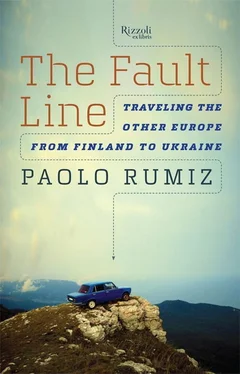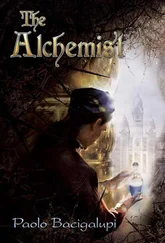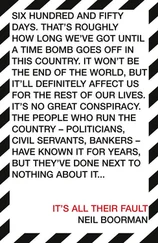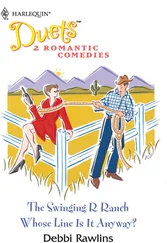Ludza is my center of Europe.
The next day, as we are leaving for Lithuania, we go out to say good-bye to the couple in the synagogue. It’s also a sort of checkup visit. I feel well despite the drunk, but I’m worried about the effects of the alcohol on Volodya. When we get there, we find him standing in the door to the house. His eyes are shining with happiness.
“How did you sleep, Volodya?”
“ Normalno ,” he laughs, and adds, “never so well.” Then, worried, “And you, old friend?”
Hugs, addresses, telephone numbers, exchanges of small gifts.
Rita: “Come back. It was one of the most beautiful days of my life.”
Volodya: “Be careful with the Lithuanian police. They give the highest fines in Europe.” And he laughs again. He looks like a new man.
Before we get to the Lithuanian frontier, the spires of the Catholic shrine at Aglona call out to us from the woods, but the church and grounds are a disappointment, like the Croatian Medjugorje, which I visited during the war in Bosnia. I see an architecture of power and image, a tourist attraction with little or no soul, with strange athletic priests, strange black cars, strange hotels and campgrounds, perfectly empty among the fir trees. We’re getting closer to the land of Wojtyla, Poland, and the Vatican already appears to be a mega–travel agency, a multinational of pilgrimages with branches all over the world. Maybe I’m too quick to judge; mine is not a journey of deep investigation. But I’ve learned to trust my instinct and my first impressions. They are rarely off the mark.
I’ve never loved triumphant religions. I prefer the minor ones and the losers, the catacombs, the peripheries or the advance guards where the hierarchies don’t stick their noses in, and power struggles are nonexistent. Maybe that’s why I felt God’s presence more in the abandoned synagogue in Ludza than before the vaguely tomblike marbles of Aglona. In the same manner, Catholicism glistens more intensely on the high plateaus of Peru than in Rome or in Ratzinger’s Bavaria. But there’s something else disturbing about Aglona. Maybe it’s the gloomier woods, maybe the nearly vanished birch trees, replaced by the needles of the evergreens, as shady as the ones in Grimm’s fairy tales. Maybe it’s the ever more visible signs of the void left by the Jews, too hurriedly refilled.
We stop to have a bite to eat in a forest blue with blueberries and green with comfortable cushions of moss. Under trees whispering with the pallid colors of Klimt, there unfolds on a tablecloth a very Slavic menu of chives, buttermilk, cucumbers, brown bread, garlic, salami, and radishes. For the first time since Murmansk, my ankles sink into the underbrush; I notice that digging is easy.
After the permafrost of the Arctic lands and after the polished granite of Karelia, the soil is sandy, marked by slight swellings like little knolls. Not always are they morainic residues of glaciers. Here, everyone knows that every rise and fall might be a common grave. From the Baltic to Ukraine, Europe is one big necropolis, still to be discovered.
Even more than Rēzekne, Daugavpils is characterized by the redbrick houses of their old tenants, wiped out by the Holocaust. We drive through it in a hurry. On the streets, children with their heads shaved, as in Italy during the war. In a bar, less than reputable types, muscular refrigerators just hopped out from a big-engine car; it’s black, too, like their clothes. Then comes the border with Lithuania, in total abandonment, green buildings falling apart, the trailer once a currency exchange office now a shelter for the homeless, the floor covered with broken glass and two-liter plastic beer bottles. A moth-eaten border crossing that looks even older than the one with Russia. But nature triumphs. On the road to Vilnius, colossal linden trees tower over the landscape, maybe the biggest ones I’ve seen in my whole life.
On the outskirts of the little town of Sventa, on the road to Vilnius, pan Eduard, Mr. Edward, is sitting in his garden shed with two Russian friends, Yevgeny and Grigori. Lithuanian, born in 1930, and a face dripping with irony, he’s smoking a cigarette and weaving wicker nets for catching lake fish. Between the two World Wars, Lithuania was part of Poland, and today Mr. Edward lives in the house of a Polish official who escaped in 1939, right after the Ribbentrop-Molotov Pact, which had decided the partitioning of his country. “He was a despot,” he tells us. “Eight families worked for him. He had twenty-five cows and six horses, and he rode around on his horse to inspect the hay harvest, carrying a club. If he didn’t like something he saw, he would point the club at someone and say: you don’t work for me anymore.”
The lesser Polish nobility didn’t make itself loved around these parts, but today its absence is noticeable. Mr. Edward’s hay is mowed very badly. With the passing of the club-wielding lords and the passing of Communism, life has been reduced to small things. It is spent fishing, smoking a cigarette, sipping a beer.
“Ours,” he says, offering me a glass, “you absolutely have to taste it. Since independence it has gotten much better.” Yevgeny weighs in on the subject. He wants to know how much beer and vodka cost in France, Italy, and Poland. His geography is all alcoholic. He writes down scrupulously with pencil and paper the Italian prices. Mr. Edward: “Things have gotten better. The stores are full. You used to have to get in line for meat, and when you got to the head of the line, the meat was all gone. To buy something decent you had to be a friend of the store manager.” Grigori laughs. “Today the stores have everything. The only thing lacking is money.”
Yevgeny tells us that after independence in 1992, he got in his car and started heading west nonstop. “I put it in first, second, third, fourth, and I kept going, going, going. Without stopping, without sleeping. Poland. Germany. Just about all I saw was gas stations, but I was hungry for space, I was euphoric like an escapee. I wanted to go all the way to the Atlantic. But in France, they stopped me. The police said to me, ‘Monsieur, your tires are bald. You can’t drive like this.’ So I spent all my money on new tires, and I came home.” I ask if things have gotten better since 1992. “The country is emptying out. At the time of the USSR, there were two hundred kids here in the elementary school. Today less than half. People aren’t having children—the cost of living is too high. Private businesses do whatever they want; they’re buying up everything. They tell me it’s like that in Russia, too.”
Monika asks if there used to be Jews around there. Grigori: “Sure there were. They were rich and poor, like us, but people hated them. And when the Germans came in 1941, the Lithuanians turned into animals. The Germans gave the signal and then they just stood and watched. Meanwhile, the Lithuanians slaughtered the Jews and the Gypsies with whatever weapons they could get their hands on. Saws, hammers, clubs.” Mr. Edward has finished weaving his wicker cage for the catfish. “There’s a place on the river, twelve miles from here, where before they killed them, they forced them to dig a common grave with their own hands.
People were drunk with blood. Svincane is the name of the place. It’s a huge cemetery like the one in Ponare, the old quarries just outside of Vilnius.” I ask him if the old owners of his house have ever come back. “One day a woman came, maybe the daughter. She didn’t do anything. She looked around, didn’t say hello to anyone, and then she left.”
After the Neris River, we give a lift to Artur and Derek, two cheerful twenty-five-year-olds who are hitchhiking to Vilnius. Only one of the two has a girlfriend there, but they’re traveling together. The stuff of days gone by. Their dream is to work in the West because in Lithuania “it’s all a fraud.” Derek tells us that he’s a bricklayer who used to be paid €1,200 a month, and now he gets €300. “The Germans are the only ones who pay for the work you do.” Artur works as a carpenter and a welder, but now he’s unemployed. “My last job was building a church. The priest got some funding from the EU and came up with the idea of a nave in the form of an overturned boat. I made him the vaulting ribs to hold up the roof.” Monika whispers to me: “He’s the modern version of Väinämöinen, or maybe the latest version of Hephaestus.” But anyway, the onion spires of Vilnius, lit up at night, come into view on a horizon of hilltops.
Читать дальше












